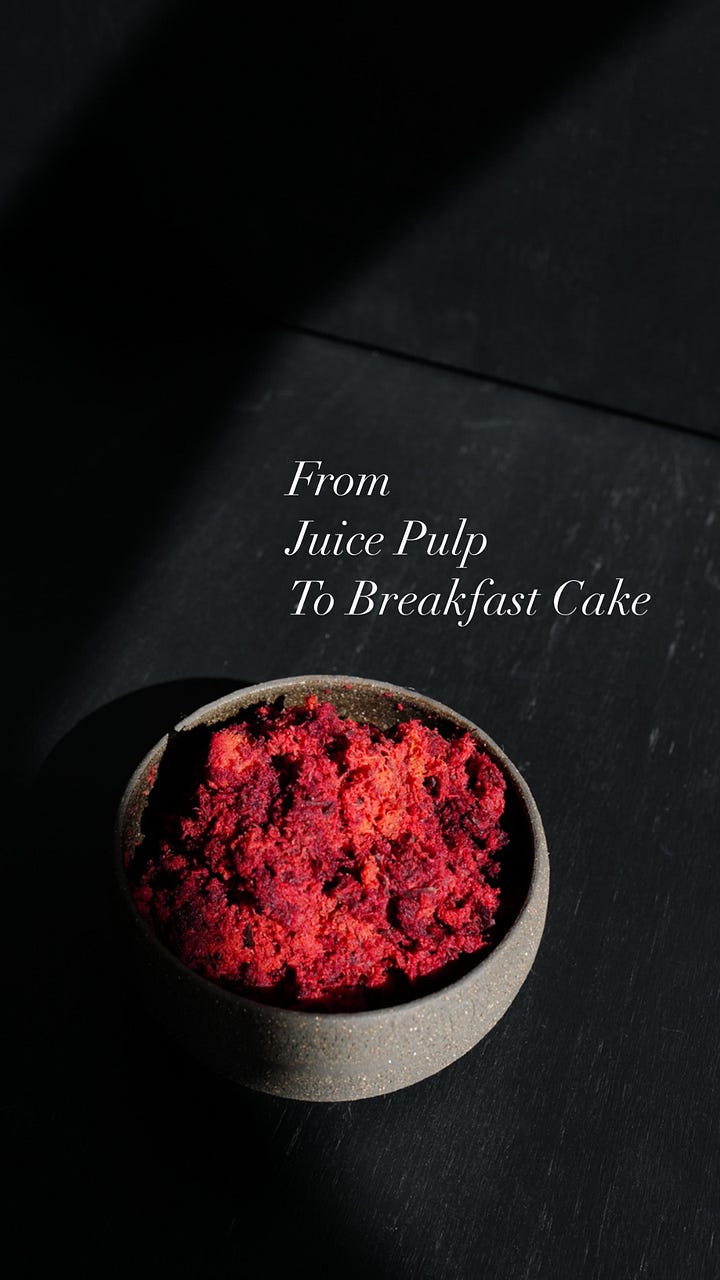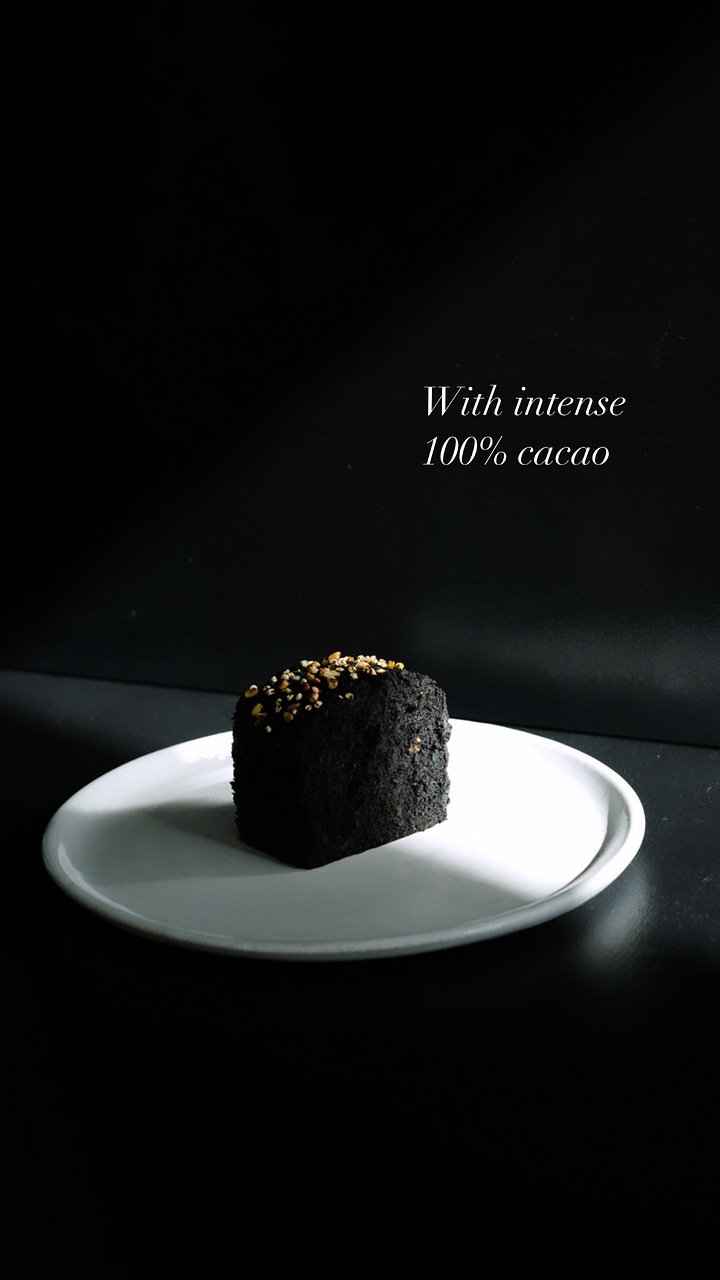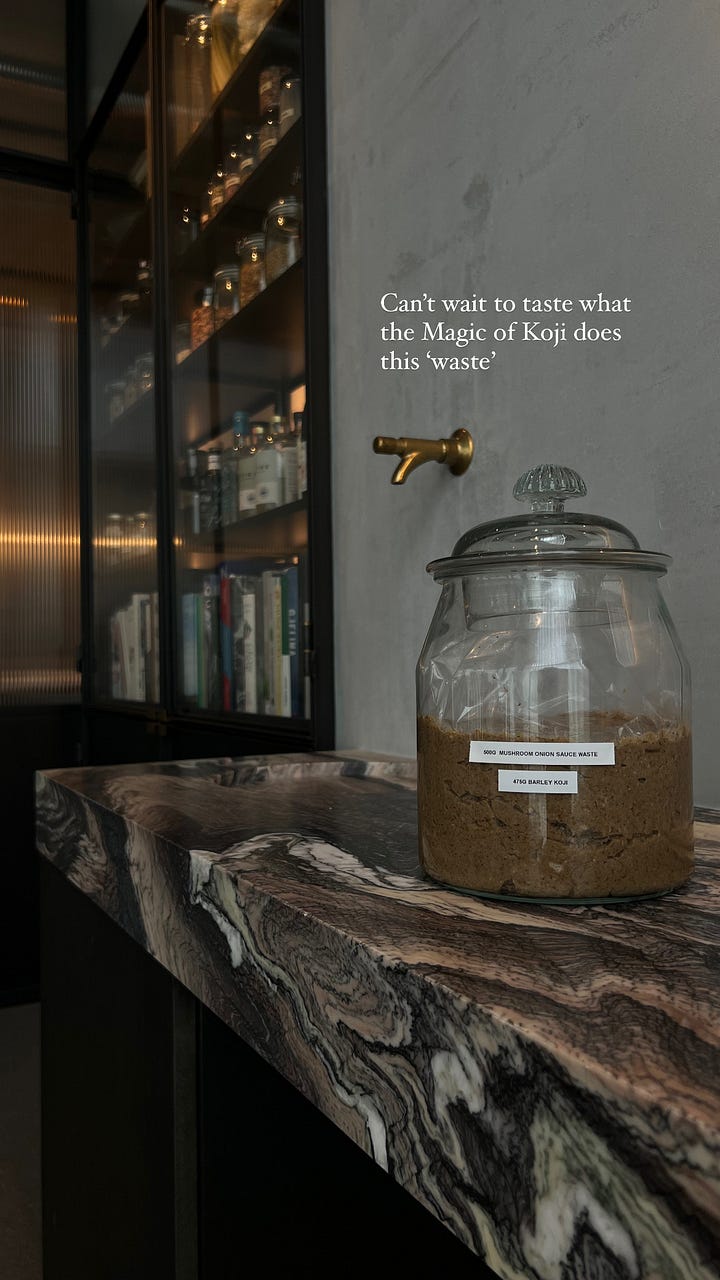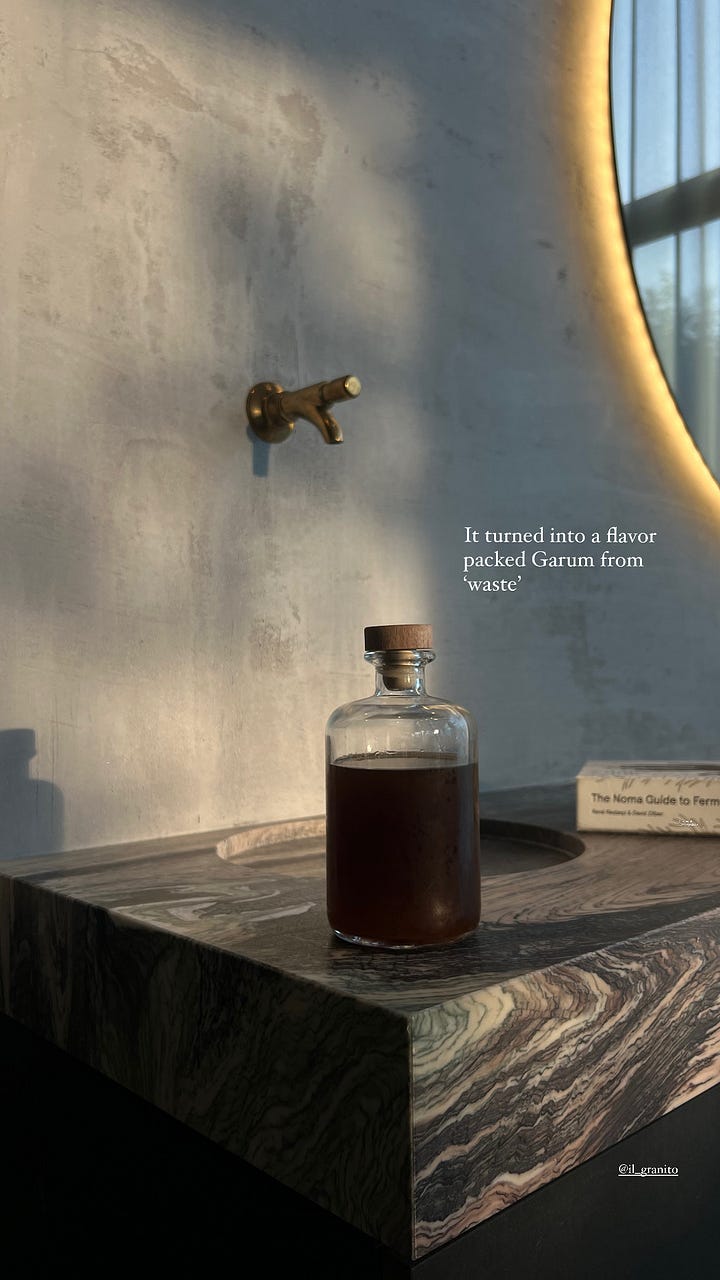I absolutely hate taking out the trash - if you even wonder where my obsession with reusing and reinventing anything considered waste in my kitchen comes from, that's the simple answer. Or how it started, anyway.
Not from idealism, environmentalism, or any other -ism you can think of, but just plain old laziness. And finding creative solutions is more fun than dragging trash to the sidewalk.
In this month's Notes & Bookmarks - Discover The World, I'll share some inspirations, thoughts, and creative solutions on the concept of waste.
When I first met Douglas McMaster, Matt Orlando, and Matt Stone at Food on The Edge in Ireland - a yearly two-day symposium on The Future of Food - it opened my eyes even more to the possibilities of using (food) waste and turning it into something new.
My mind was blown seeing a table filled with innovative products all made from vegetable peels and other nutritious parts that are usually discarded, end up in landfill, or at best are composted. And it certainly made me feel less alone in my mission.
When I see food scraps, my brain immediately goes into overdrive, in creation mode.
It doesn't always have to be as complex as turning the leftovers from straining a sauce into a garum and miso that takes months to ferment and age. Simple solutions like adding vinegar and sugar to fruit, vegetables, and herbs create a scrub (drinking vinegar) which can be used for cocktails, dressings - you name it. Endless opportunities to create new, unique products.




Along the way, this way of thinking has fed my curiosity on many levels, including the complex issue of sustainability in general. Pretty much my whole life I've been the odd one, like when I started speaking up about plastic pollution well over a decade ago and refusing single-use plastic. Now everyone is on board and using a reusable water bottle. But back then, the comment I'd always get was "What's the problem? We recycle!"
But do we really?
That might be the biggest problem about waste - the 'idealistic' image created around recycling, making the problem 'go away'. Maybe even feeding consumerism.
Products are designed to be conveniently thrown away after we've used them. Essentially moving them from one place to another, thinking it will magically disappear through recycling. In reality, most of our waste can't be recycled, comes at a huge cost, and goes to landfill anyway.
Honestly, a lot has changed. We are absolutely more aware, and our day-to-day choices like selecting vegetables without packaging can make a difference.
As Douglas McMaster says, "Waste is a failure of the imagination," but I would add that it's also a battle of convenience.
True convenience isn't about disposable solutions – it's about thoughtful design that eliminates the need for waste altogether.
Good design can be used again and again. Or it can be given back to nature without a toxic impact. That's what we should aim for – not recycling.
For me, 'good' design, architecture, art, and food are all connected.
It's about looking at the world and thinking differently. While it's easier to conform to the existing system and follow the path of convenience, what if we built a new system that made sustainability the norm?
Who knows, you might, like me, come to see taking out the trash as an inconvenience that shouldn't exist in the first place.
As a society, we've been fooled into thinking, "It's okay, we can recycle it, what's the problem?" The problem is that most of our waste is unnecessary to begin with. Waste management should start by not creating waste in the first place.
Take something as simple as plastic wrap. I cannot wrap my head around why anyone would even want to use it. It's arguably the most annoying thing in a kitchen – you can never get it off the roll properly, and once you do, it sticks to itself, becoming useless. That's not good design. What's convenient about that? Use a lid or cover it with a plate - simple, easy, and creating a stackable fridge without putting up a fight with the plastic wrap.
What if we create a system that doesn't generate waste?
We need to give back what we take from nature, not dump our created waste on it. My dream is for our creative minds to be catalysts for this change, transforming how we think about waste and convenience - reimagining a world where waste isn't created in the first place.
Here’s some of my bookmarks and inspirations to get you thinking and creating:
Joost Bakker is the OG Zero Waste genius
Greenhouse is a project Joost created in the center of Melbourne where Chefs Matt Stone and Jo Barrett lived and worked
Chef Matt Orlando speaking at Food On The Edge in 2017 about his Restaurant Amass and their approach “there’s no such thing as a by-product, just a new product”
Amass has sadly closed but here Matt introduces his framework for sustainability: AIR Awareness, Impact, Responsibility and what he is working on now.
Book Douglas McMaster SILO - The Zero Waste Blueprint
This book should be in every kitchen.
We need to stay calling these events UNnatural Disasters - Lara Hoad
I've come to understand that we need to radically rethink our relationship with waste in all aspects, taking the time to consider the impact our creations have and designing them to minimize that impact from the start.
With everything going on in the world, disaster, politics, the speed of AI and the way it is used (using up massive amounts of resources) our conversations need to shift in order to change the perspective. My friend Lara Hoad, an environmentalist, architect, and educator, taught me something very valuable when she started correcting me every time I talked about "natural disasters." "You mean UNnatural disasters," she would say.
She was absolutely right. It might sound like a small, simple correction but it made me think about the lifecycle of everything we put out into the world.
Perhaps instead of celebrating technological revolutions, we should be studying natural evolutions. Nature itself provides the perfect model. It doesn't create waste; instead, it’s an innovative closed-loop system that we should learn from rather than trying to beat or destroy.
Read Lara’s post on rethinking how we build
Speaking of technology, most people aren’t aware of the impact AI has on our Climate. Listen to this and you will rethink how you use AI.
Or at least stop asking it stupid questions just for the fun of it.
I’ve metioned Matt Barr’s substack & podcast Looking Sideways a couple of times
It is a true gem. With the 3-part documentary series The Accouncement he looked into Patagonia’s decision to making ‘Earth’ it’s only shareholder.
This is what I love about independent ‘social’ media, have a listen and support what he does by sharing it. It’s important to keep looking at the bigger picture.
My personal view on what is discussed in The Announcement is; You have to start somewhere. It’s easy to sit back do nothing and critic.
To me it’s all about setting an example. Patagonia has been showing up in many ways creating awareness and that to me is the most important part of it.
At this finish this month’s list a Netflix recommendation Buy Now! - The Shopping Conspiracy
Let me know if you have any thoughts or recommendations, would love to hear them.






